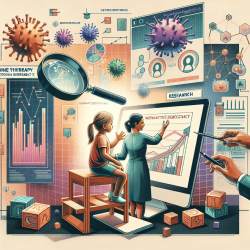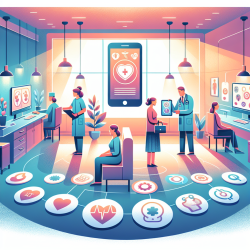In today's fast-paced world, the need for efficient and real-time health monitoring systems has never been greater. Recent advancements in mobile health (m-Health) technology have paved the way for innovative solutions that can significantly enhance patient care and outcomes. A notable example is the intelligent mobile health monitoring system (Im-HMS) discussed in the research paper "Real-time tracking and detection of patient conditions in the intelligent m-Health monitoring system" by Xiaoyan Li and Kangwon You.
The study introduces an Im-HMS that integrates cloud computing, IoT, and artificial intelligence to monitor patients' physical activity and other health-related factors in real time. The system's performance was analyzed and found to be superior to existing UCD systems in terms of accuracy, delay time, error range, efficiency, and energy utilization. Here are some key takeaways from the research that can help practitioners improve their skills and encourage further exploration in this field:
- Enhanced Accuracy: The Im-HMS system boasts an accuracy rate between 98% and 100%, significantly higher than the 91% to 97% range of UCD systems. This means more reliable data for better patient care.
- Reduced Delay: With a delay time ranging from 18 to 39 milliseconds, the Im-HMS system outperforms UCD systems, which have a minimum delay of 84 milliseconds. This ensures timely interventions and responses.
- Lower Error Range: The error range of the Im-HMS system is between 0.2 and 1.4, compared to -2 to 14 for UCD systems. This precision is crucial for accurate health monitoring.
- Higher Efficiency: The system's efficiency is higher than that of UCD systems, making it more effective in practical applications.
- Energy Utilization: The Im-HMS system is more energy-efficient, consuming only 64% of the energy used by UCD systems, making it a sustainable option for long-term use.
For practitioners, integrating these advanced m-Health systems into their practice can lead to improved patient outcomes and more efficient healthcare delivery. Additionally, staying informed about the latest developments in m-Health technology through conferences, publications, and webinars can provide valuable insights and keep practitioners at the forefront of this rapidly evolving field.
To further enhance your understanding and explore the full potential of real-time health monitoring systems, consider diving deeper into the original research paper. The detailed analysis and findings can provide a solid foundation for implementing these technologies in your practice and inspire further research and innovation.
To read the original research paper, please follow this link: Real-time tracking and detection of patient conditions in the intelligent m-Health monitoring system.










